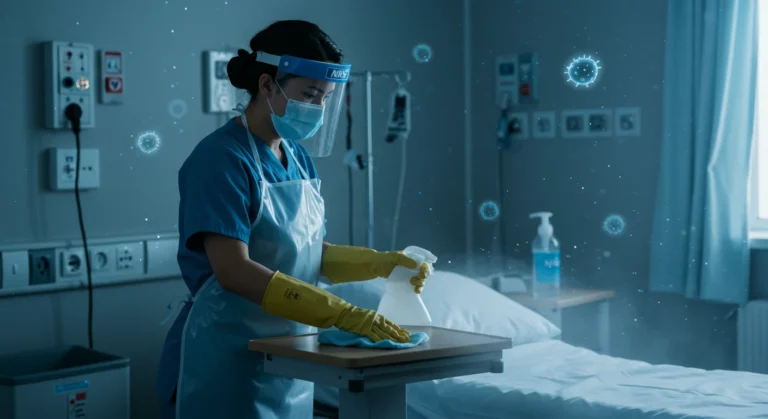Introduction
Managing MRSA in an acute setting is critical to preventing infections, especially in hospitals and care facilities. MRSA (Methicillin-Resistant Staphylococcus aureus) is a drug-resistant bacteria that poses serious risks to vulnerable patients. This guide covers essential infection control measures, UK-specific protocols, and best practices for effective MRSA management.
What is MRSA?
MRSA is a type of antibiotic-resistant staph bacteria that can cause severe infections, including:
- Skin and wound infections
- Pneumonia
- Bloodstream infections (sepsis)
Unlike regular staph, MRSA does not respond to common antibiotics, making it harder to treat.
Why is MRSA a Concern in Acute Settings?
Acute healthcare settings (hospitals, ICUs, surgical wards) are high-risk environments for MRSA due to:
✔ Frequent patient transfers
✔ Invasive procedures (catheters, IV lines)
✔ Vulnerable patients (weakened immune systems)
Without proper management, MRSA can spread rapidly, leading to outbreaks and increased mortality rates.
10 Key Steps for Managing MRSA in an Acute Setting
1. Rapid Identification and Screening
Early detection is crucial. MRSA screening should be done for:
- High-risk patients (those with previous MRSA, chronic wounds)
- Pre-operative patients (NHS guidelines recommend pre-admission screening)
Tests include:
- Nasal swabs
- Wound cultures
2. Isolation and Barrier Precautions
Confirmed MRSA cases require:
✔ Single-room isolation (or cohorting if necessary)
✔ Personal Protective Equipment (PPE) – gloves, aprons, masks
✔ Contact precautions to minimise spread
3. Strict Hand Hygiene Practices
Alcohol-based hand rubs and soap-and-water washing are essential. The WHO’s “5 Moments for Hand Hygiene” should be followed strictly.
4. Environmental Cleaning and Disinfection
MRSA survives on surfaces for weeks. High-touch areas (bedrails, doorknobs) must be cleaned with chlorine-based disinfectants.
5. Appropriate Antibiotic Treatment
MRSA requires special antibiotics like:
- Vancomycin
- Linezolid
- Daptomycin
Antibiotic stewardship is vital to prevent further resistance.
6. Decolonisation Protocols
For carriers, decolonisation may include:
- Nasal mupirocin ointment
- Chlorhexidine body washes
7. Staff Education and Training
All healthcare workers must be trained in:
✔ MRSA transmission risks
✔ Correct PPE usage
✔ Cleaning protocols
8. Monitoring and Surveillance
Regular audits and MRSA infection rates tracking help identify outbreaks early.
9. Patient and Visitor Awareness
Patients and visitors should:
- Follow hand hygiene rules
- Avoid unnecessary contact with infected individuals
10. Compliance with UK Guidelines
Follow NHS England and Public Health England (PHE) guidelines, including:
- MRSA bacteraemia reduction targets
- Mandatory reporting of cases
Common Questions About MRSA Management
Q1: How is MRSA transmitted in hospitals?
MRSA spreads through direct contact (skin-to-skin) or contaminated surfaces.
Q2: Can MRSA be cured completely?
Yes, with proper antibiotics and decolonisation, but reinfection is possible.
Q3: What should I do if a patient tests positive for MRSA?
- Isolate the patient
- Notify infection control teams
- Follow local MRSA protocols
Read More : 10 Proven Tricks to Get a Council House in the UK: A Step-by-Step Guide
Conclusion
Managing MRSA in an acute setting requires strict infection control, rapid detection, and adherence to UK healthcare guidelines. By implementing these 10 key steps, hospitals can reduce MRSA risks and protect vulnerable patients.

